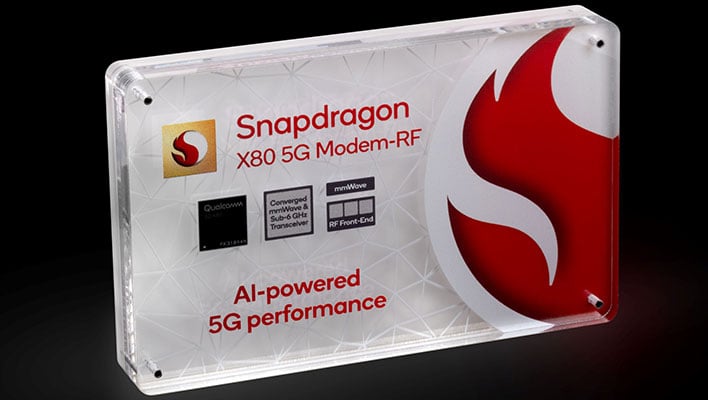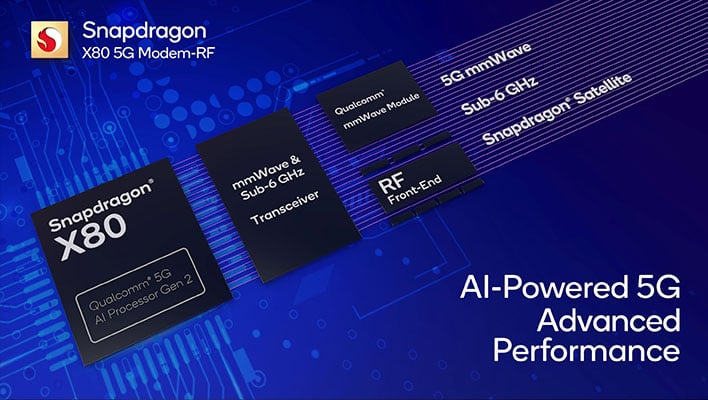
Qualcomm is making a splash at this year’s Mobile World Congress (MWC) event in Barcelona Spain, with several announcements, one of which is the introduction of its Snapdragon X80 5G Modem-RF system. Harnessing the capabilities of AI, Qualcomm is pitching its latest-generation modem as the most advanced modem-to-antenna platform yet, sporting some serious spectrum flexibility.

That’s okay, though, because the Snapdragon X80 5G is transformative in other ways as well, with groundbreaking updates and key additions. Notably, Qualcomm highlights a handful of industry-first milestones achieved with its X80 system—it’s the first 5G modem to fully integrate support for NB-NTN satellite communications, it’s the first to support six receiving antennas for smartphones, and it’s the first 5G modem system to feature 6X carrier aggregation.

As with the Snapdragon X75 5G, the Snapdragon X80 5G boasts a peak download speed of 10Gbps and top upload speed of 3.5Gbps. It also supports all global 5G bands, from 0.6 to 41GHz, and is further optimized with Qualcomm’s 5G AI Suite Gen 3 to intelligently enhance data speeds and QoS schemes.
The Snapdragon X80 also leverages AI-based mmWave range extension for fixed wireless access customer premise equipment (CPE). This is important, as mmWave taps into higher frequency radio bands to deliver speeds that come closer to fully realizing the potential of 5G, but is a shorter range solution that can be affected by obstructions and quickly degrade. Any time a company like Qualcomm can introduce a solution that extends mmWave range, that’s a very good thing.

“The Snapdragon X80 modem-RF system sets the stage for 5G Advanced and the era of intelligent
computing everywhere,” said Durga Malladi, senior vice president and general manager,
technology planning and edge solutions, Qualcomm Technologies, Inc. “Leveraging AI is critical
to the future of connectivity, this latest milestone underscores Qualcomm Technologies’ leadership
at the intersection of cutting-edge AI and advanced modem-RF technology. The Snapdragon X80
5G Modem-RF System empowers OEMs and operators to create next-generation devices
supporting 5G Advanced, with unrivaled capabilities and leading performance.”